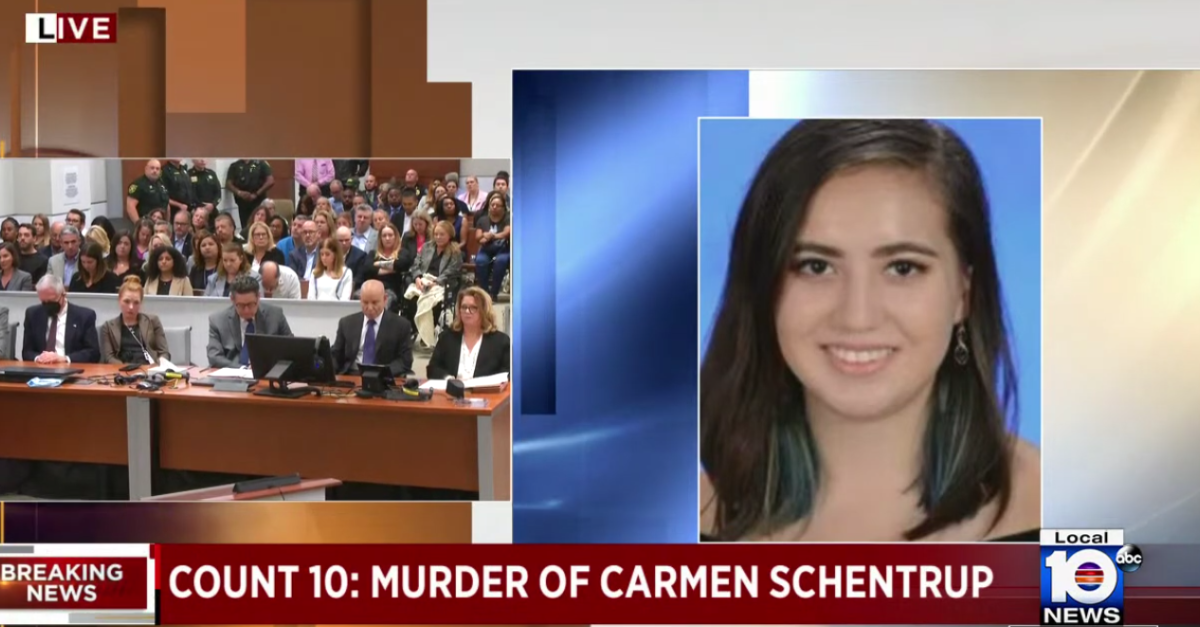On February 14, 2018, Nikolas Cruz killed 17 people and injured 17 others in what became known as the Parkland School Shooting. The 19-year-old started shooting up Stoneman Douglas High School around 2:30 in the afternoon – he targeted the Freshman building.
After four minutes of shooting, Cruz blended in with the crowd of fleeing students and got away. He ran to a nearby WalMart, purchased a drink at a nearby Subway, and went to a McDonalds – where he sat down and spoke to the brother of one of his victims. He was arrested shortly after.
It was the deadliest high school shooting in United States’ history and came at a time when mass shootings were occurring on the regular. Unlike other mass shootings, Cruz didn’t commit suicide and wasn’t killed by the cops – setting up for a rare, yet momentous murder trial.
Last year, Cruz pleaded guilty to all 17 murders – as well as all the other charges he was facing. The prosecution was hoping he would receive the death penalty for his egrigious and disgusting behavior. His murder trial began on July 18th and officially came to a close on October 13th.
The jury was responsible for deciding Cruz’s fate – will he live or will he die? In what turned out to be a major disappointment to some of the victims’ families, Cruz was spared the death penalty and will, instead, spend the rest of his life behind bars without the possibility of parole.
While the jury agreed that Cruz was acting in a “cruel, cold, calculated, and premeditated manner,” and that his crimes were “especially heinous, atrocious, or cruel,” they couldn’t agree on what many in the prosecution wanted – the death penalty. It needed a unanimous vote.
The two primary reasons why can be attributed to Cruz’s psychiatric state at the time of the shooting and the fact that he was diagnosed with fetal alcohol syndrome after his mother drank alcohol and used drugs while pregnant with him. This is why the jury opted for a life sentence.
The lead prosecutor, Mike Satz, described Cruz’s behavior that fateful day as a ‘systemic massacre,’ ‘goal-directed,’ ‘calculated,’ and ‘purposeful’ – citing his hoarding of ammunition, research of prior school shootings, and researching how long it would take police to respond.
Family Members of Parkland School Shooting Victims Are Torn Over Verdict

While a majority of the Parkland School Shooting victims’ families were in favor of the death penalty, that sentament wasn’t shared among all of them. Those that were against the death penalty weren’t afraid to voice their opinion, even if it went against the other families’ beliefs.
Robert Schentrup, the brother of a victim, was against Nikolas Cruz receivingthe death penalty. He later explained his beliefs in a Twitter post, arguing “You cannot say that murder is heinous or unforgiveable while advocating for the murder of someone else.”
Schentrup lost his sister, Carmen, in the shooting. Their mother respectfully disagreed with her son, writing, “If police did their job that day, the shooter would’ve been killed. … Since they didn’t do what was needed then, let the court get it right this time.” As you can see, things were tense.
YOU MAY ALSO LIKE: Jury Hits Alex Jones With Millions in Damages After He Admits to Spreading Lies About Sandy Hook Shooting
The defense team argued “Sentencing Nikolas to death will literally serve no purpose at all other than vengeance.” The jury ultimately decided to spare his life, leaving him to spend the rest of his life behind bars. “You will never regret voting for life,” said the defense team.